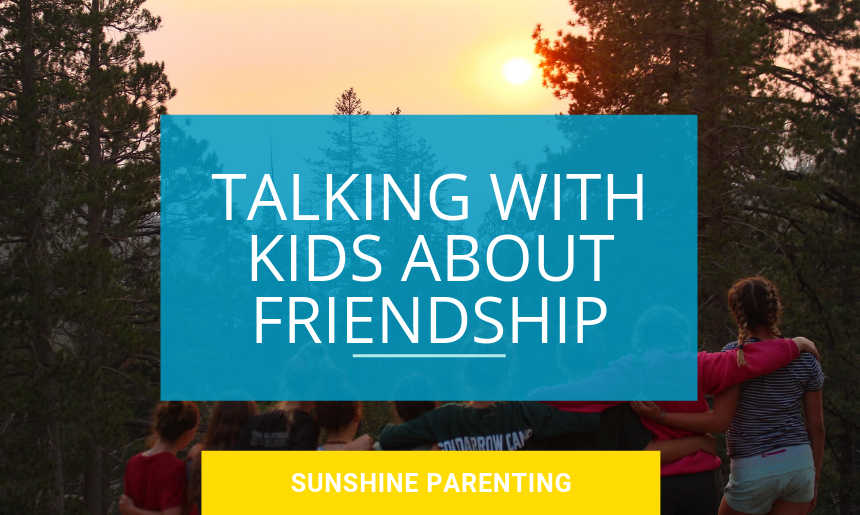
“Friendship is a life skill you need to learn, so why not start now?”
Jackson, Age 9
I spent yesterday evening making friendship bracelets and talking about friendship with a group of campers. We were outside, near pine trees and a campfire — the perfect camp setting. At one point, a deer walked by about 50 feet away from us.
Evenings like yesterday are what I love best about my job as a camp director. I’m obsessed with friendship and connection, and I love every opportunity I have to spend time with kids and help them connect with others and learn how to be better friends.
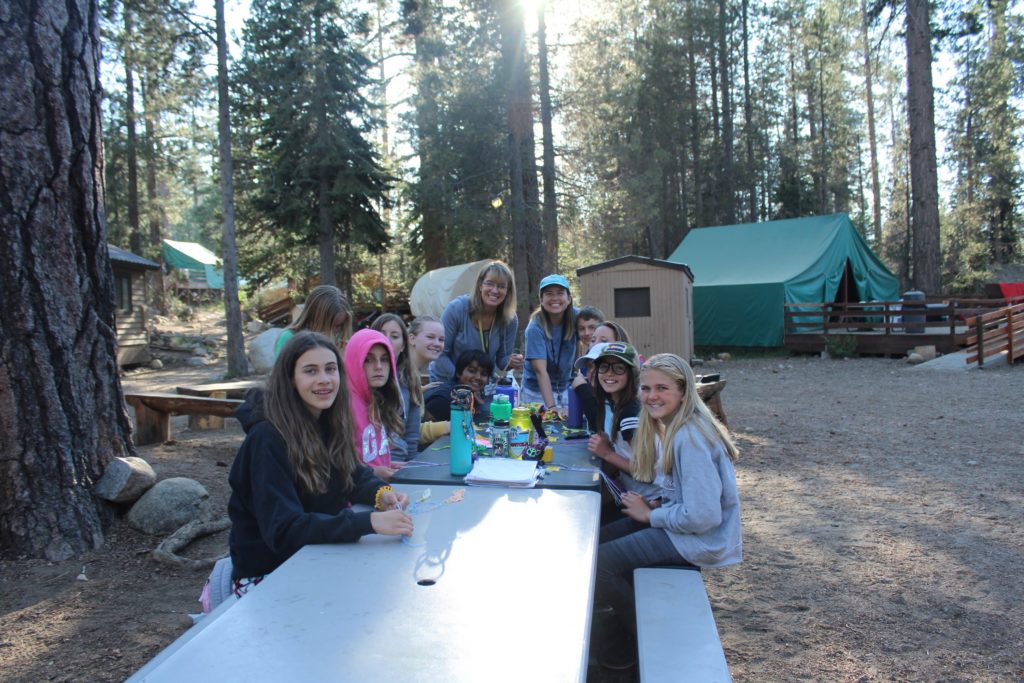
We need look no further than the 75-Year Harvard Study (and our own life experience) to know that it is NOT what college kids attend, how good they are at sports, or how much money they make that will lead to a flourishing adult life.
Instead, it is the quality of their relationships that will best predict our children’s future health and happiness.
And what best predicts the quality of relationships? Yep, you guessed it. Social skills!

10 Friendship Skills e-book
Subscribe to my updates with tips for raising thriving kids, and I'll send you my 10 Friendship Skills e-book!
Children and teen’s friendships are where they practice the relational skills they will use throughout their lives.
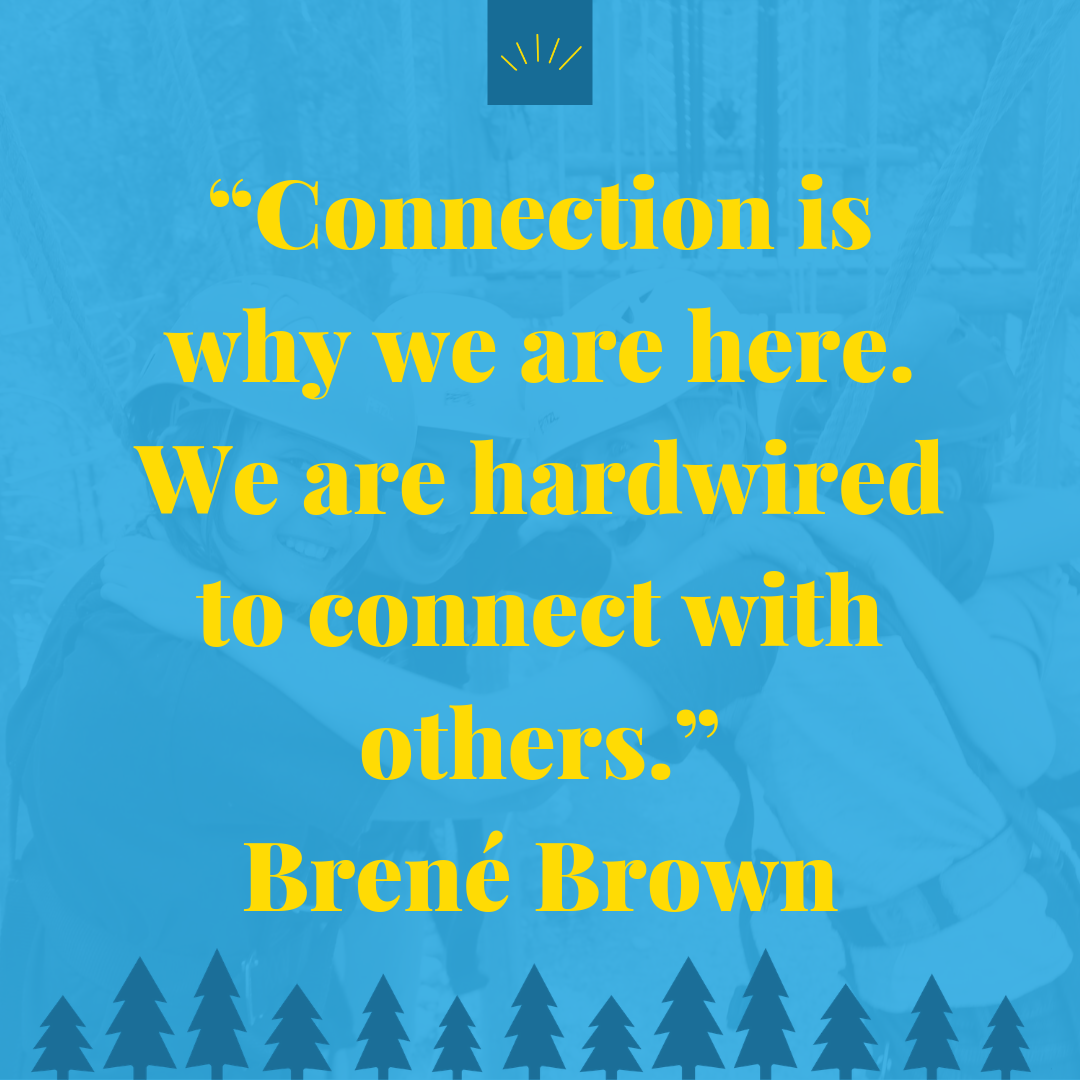
Making friends has always been one of our most important camp goals, and so I’ve spent the last decades researching and developing activities at camp to promote the development of our campers’ friendship skills, the close friendships between campers, and the connection between counselors and campers. I even did my thesis research for my masters in psychology on how camp experiences impact children’s social skills!
The kids I spent the evening with yesterday signed up for my friendship activity. They weren’t forced to be there because of problems in school or with their friends. They wanted to be there, and they were open and positive as we talked about friendship.
In just an hour and a half, and with much socializing and friendship-bracelet making in-between, we covered a lot of topics.
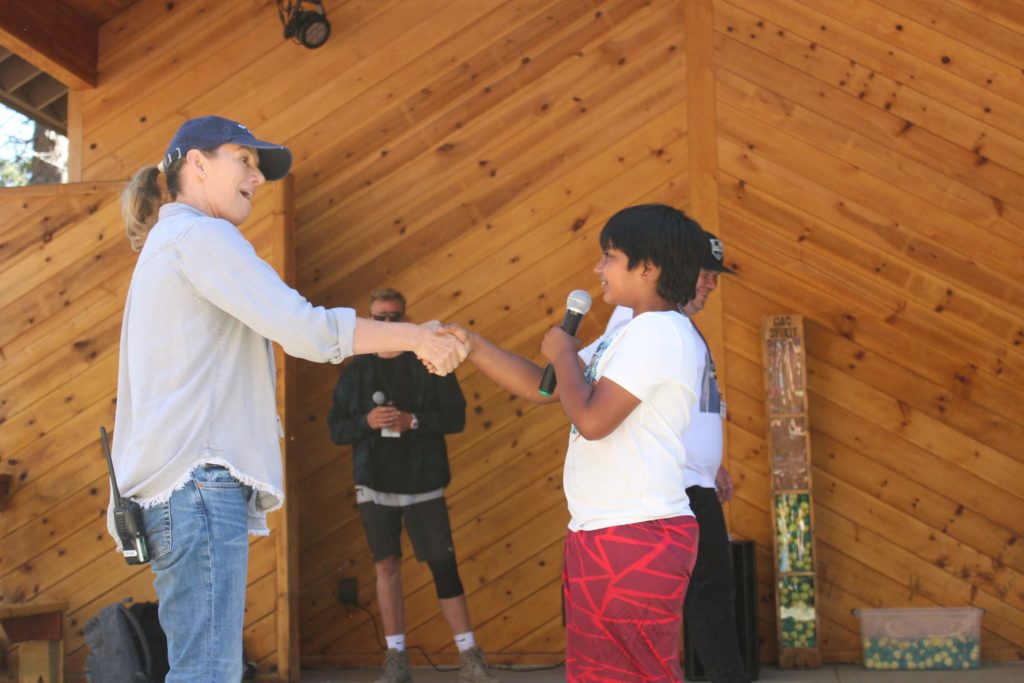
#1 Introducing Yourself
How to introduce yourself to others. We talked about the acronym WESTI (from Michael Brandwein) that reminds us how to greet others whom we’re meeting for the first time:
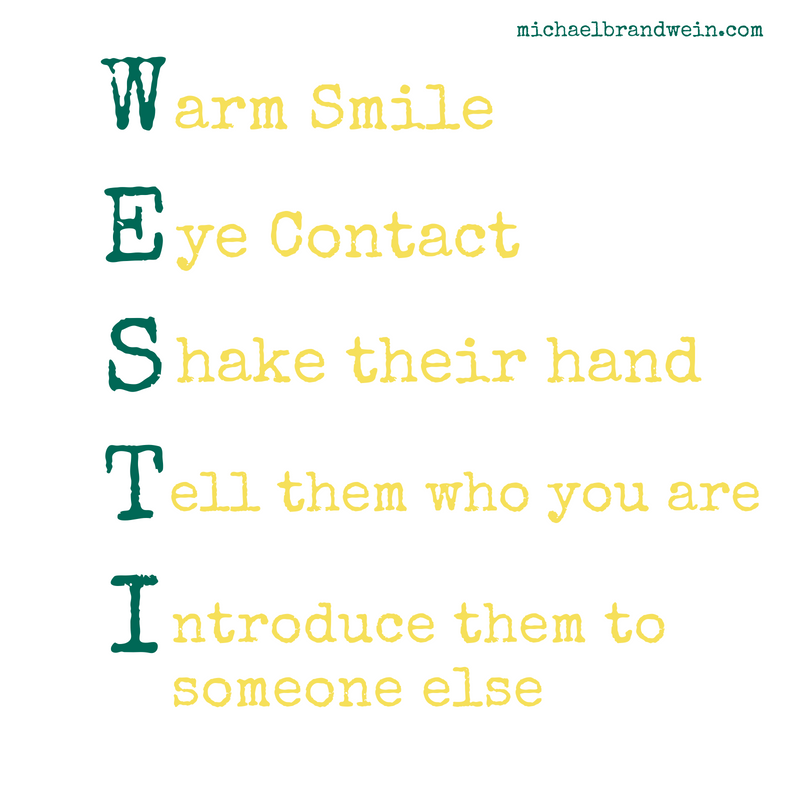
Next, they sat across from someone they didn’t know and practiced introducing themselves. Then they introduced their new friend to someone else.
#2 Social Skills Strengths
I shared my Social Skills Checklist with them by reading and talking about each skill. Each camper then shared one skill from the Social Skills Checklist that they felt was a strength. They shared a variety of social skills strengths including joining into conversations, asking questions to get to know others, being trustworthy, and being kind.
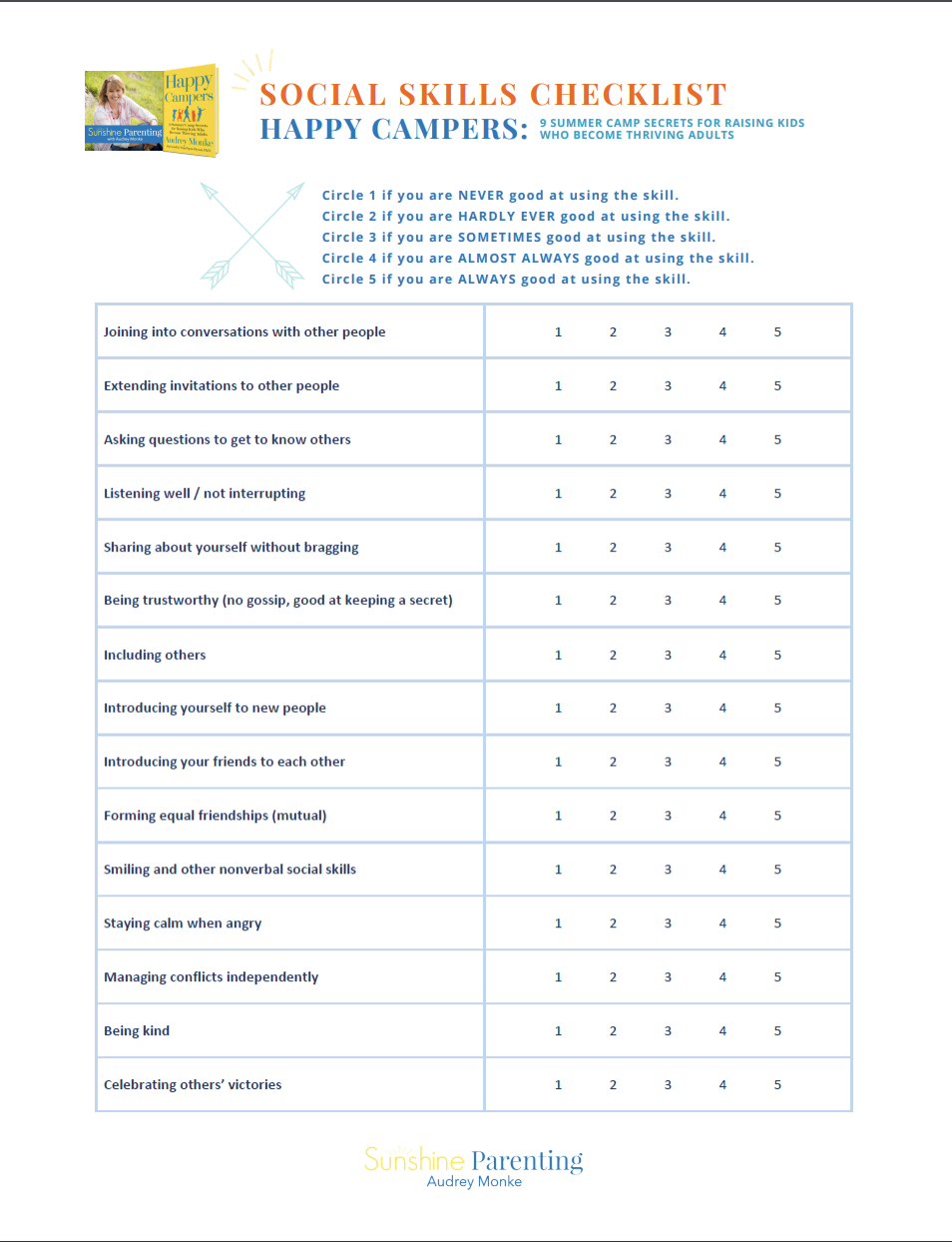

Social Skills Checklist
Subscribe to my weekly emails, and I'll send you my Social Skills Checklist!
#3 Social Skills Deficits
Next, I asked for each camper to share a friendship skill they wanted to work on during camp. We went around the table, and each camper shared a skill they wanted to work on over the next few weeks. A few of their responses included listening well/not interrupting, staying calm when angry, and being trustworthy.
#4 Brainstorming How to Improve a Social Skill
Because three campers had shared that “staying calm when angry” was a social skill they wanted to work on, next we brainstormed as a group different ways to stay calm. The kids had so much insight and shared great ideas that have worked for them.
The remarkable thing about kids is that they know so much and can really help each other. As adults, often our role is just to facilitate getting the conversation started. They can do most of the brainstorming themselves.
#5 Asking Questions
I love asking kids this question:
“What’s everyone’s favorite topic to discuss?”
Last night’s group came up with some great answers, including “hobbies,” “interests,” and “sports.” Finally, one camper said the answer I was looking for – “THEMSELVES!”
Yes, it’s true. People love talking about themselves and sharing personal stories. So, an excellent social skill to improve is learning how to ask good questions to get to know people. I shared my list of Questions for Connections and, with some of the older campers, Aron’s 36 Questions. We talked about, in addition to asking good questions, it’s important to listen well and ask related follow up questions. There’s no better way to get people to think you’re a fantastic friend than to allow them to talk about themselves!
During our short evening conversation, with no pressure to perform, negativity or judgment, campers opened up and learned about friendship. I concluded the evening by giving each camper a “Friendship Facilitator” certificate. I asked them to share one thing they had learned about friendship, and I empowered them to go help other kids learn about friendship.
We need to spend more time talking with our kids about how to find, make, and keep friends. They need to learn about the qualities that make them a good friend, so that they can be one to others.
These conversation about friendship need to be the same as the conversations we have about academics and athletics. That is, that kids can improve their social skills with practice and that we all need to have a growth mindset about our social skills. Social skills deficits are nothing to make kids feel bad about. Last night, I told the kids that many adults struggle with staying calm when angry, so they are well ahead of the game to be identifying and working on that skill while they’re still kids!
The more I research how to achieve well-being, health, and “success” for ourselves and our children, the more I’m convinced that our time with children and teens needs to be focused primarily on our connection with them and on helping them develop positive relationships with others.
Connection always needs to come first!
Resources/Related Posts & Podcast Episodes
Growing Friendships: A Kid’s Guide to Making and Keeping Friends
Teaching Your Campers the Art of Friendship, Camping Magazine
